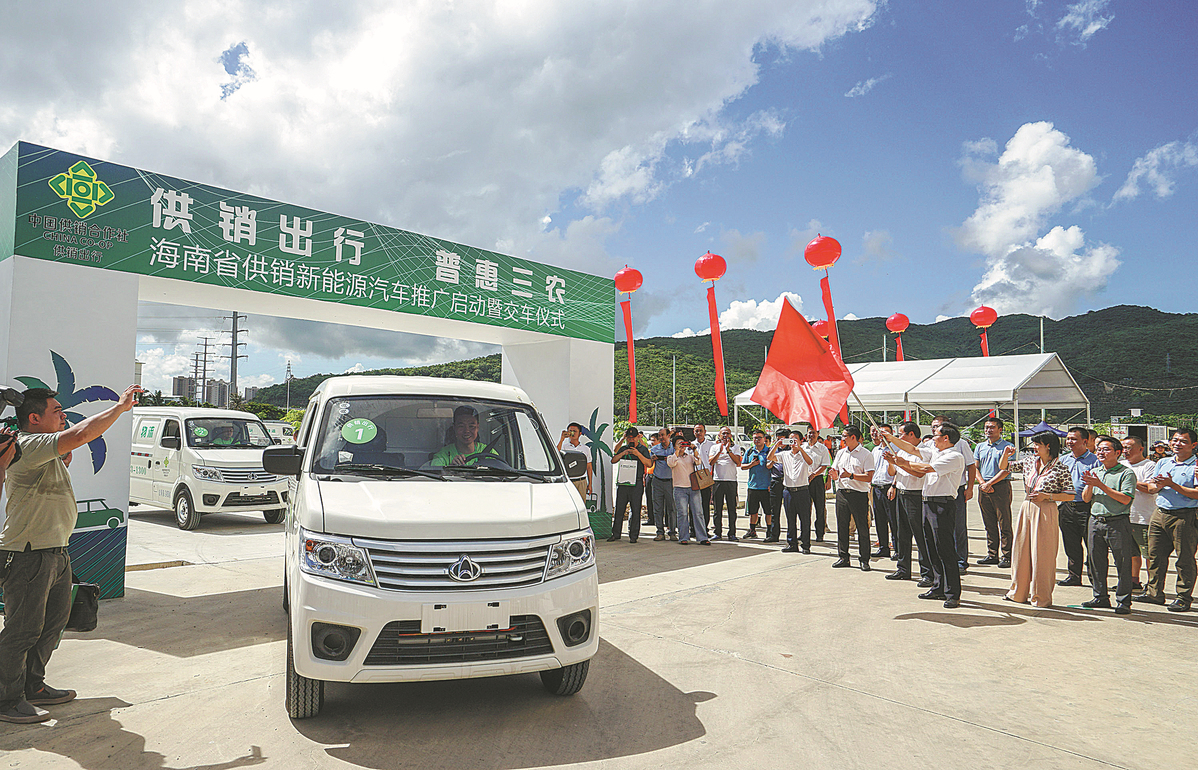Auto sales on the right road again


Additional sales
Chen Shihua, deputy secretary-general of the China Association of Automobile Manufacturers, or CAAM, agreed that the tax cut would generate additional sales of about 2 million vehicles, or purchases worth more than 300 billion yuan.
If upstream and downstream industries such as auto parts, raw materials and insurance were factored in, the figure would total 500 billion yuan, Chen said.
Carmakers, many of whom were badly affected by plunging business in April, are seizing the opportunity to revive sales by offering discounts.
Sino-German joint venture SAIC Volkswagen said buyers of some of its Volkswagen-branded models only pay 25 percent purchase tax, while its remaining models do not attract such a levy.
Jetour, the high-end marque launched by Chinese carmaker Chery Holding, said it will pay purchase tax on all its models for customers, while rural buyers will receive a subsidy of 5,000 yuan.
In addition to the reduced purchase tax, Swedish carmaker Volvo is offering lifelong maintenance and subsidies of 5,000 yuan for some of its models.
Local governments are also stepping up efforts to boost consumption.
In total, 20-plus provinces and municipalities have introduced financial incentives for car buyers as part of a package of measures to stabilize economic performance.
In Shandong province, buyers placing car orders last month and this month are entitled to coupons worth up to 6,000 yuan, while in Hubei province, those buying vehicles in the second half of this year are eligible for subsidies of up to 8,000 yuan.
On June 2, the government in Nanjing, capital of Jiangsu province, said in a notice that buyers of new electric cars or plug-in hybrids would receive a subsidy of 12,000 yuan this year.
Three days later, the authorities in Shenyang, capital of Liaoning province, said they would organize five car exhibitions and offer car purchase subsidies totaling 100 million yuan this year.
Besides subsidies, most major cities that restrict vehicle purchases to curb air pollution are issuing additional license plates.
Han Tong, a middle-school teacher in Tianjin, said: "This is more attractive for me than government subsidies. I have taken part in the 'license plate lottery' for years, but luck has eluded me so far. If I can get a license this time, I will place an order for a car immediately."
On May 31, the authorities in Tianjin decided to offer an additional 35,000 license plates in the second half of this year.
In Guangdong, the authorities in Shenzhen and Guangzhou, the provincial capital, said last month they would offer another 20,000 and 30,000 license plates, respectively, this year.
In Shanghai, where life had recently been disrupted by COVID-19 restrictions, the municipal government said it was issuing another 40,000 license plates for passenger vehicles this year, while early this month, the authorities in Hangzhou, capital of Zhejiang province, offered an extra 40,000 license plates.
Earlier this year, the State Council said local governments should not introduce new measures to curb vehicle purchases, and those that had done so should gradually increase license plate quotas.
Ning Xiang, an independent analyst in Beijing, said increased license plate quotas would have a more direct effect on sales. "Even subsidies of 20,000 yuan will not necessarily lead to purchases, but license plates in big cities surely will," he said.


















